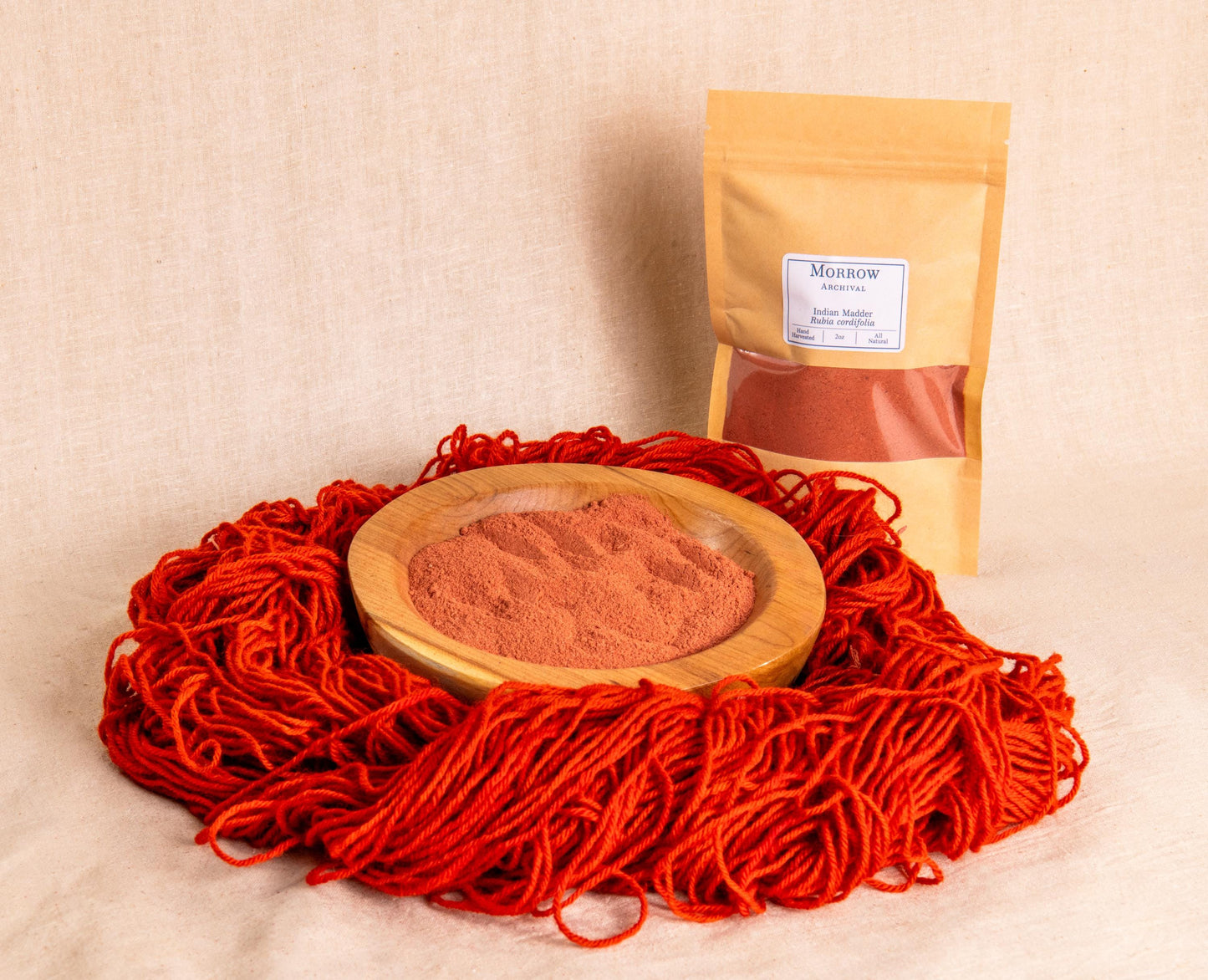Indian Madder Dye
Indian Madder Dye
Couldn't load pickup availability
Share

Description
Indian Madder is a treasured natural dye made from the dried and ground roots of Rubia cordifolia, a climbing plant native to the Indian subcontinent. Known for its vivid, lightfast reds, Indian Madder yields a range of hues—from coral pinks and rosewood to brick red, terracotta, and deep rust—depending on the mordant, pH, and water hardness. Its high content of purpurin and munjistin distinguishes it from European madder (Rubia tinctorum), offering warmer and more orange-toned shades that glow with natural warmth and complexity.
Recommended Use
Use at 5–10% WOF for medium to strong shades. Madder root requires a warm (not boiling) extraction process to preserve red tones. Simmer gently and strain before adding fiber. Madder performs best on protein fibers like wool and silk, but also yields strong results on cotton and linen with proper mordanting. Hard water and cream of tartar help deepen reds and reduce browning.
Historical Significance
Indian Madder has been used since antiquity across South Asia in temple textiles, court garments, and manuscript illustration. Revered in Ayurvedic medicine and religious rituals, it became a key export through ancient trade routes and was later adopted by European dyers during the colonial era. Its role in block-printed fabrics like those of Rajasthan and Gujarat remains central to traditional dye practices today.
Dye Details
Name: Anthraquinones from Rubia cordifolia
Origin: India
Dye Type: Botanical root extract
Recommended Fibers: Wool, silk, linen, cotton, and blends
Lightfastness: Excellent on protein fibers; good on cellulose with alum
Mordants & Modifiers:
Alum – bright reds to soft pinks
Cream of Tartar – enhances red and coral tones
Calcium Carbonate – boosts purpurin content for orange-reds
Iron – deep brick reds to browns
Soda Ash (alkaline bath) – shifts toward rust and orange
Acidic pH (citric or acetic) – shifts toward pinks and rose
Packaging
Available in resealable, eco-friendly kraft pouches with full instructions for extraction and color control.

